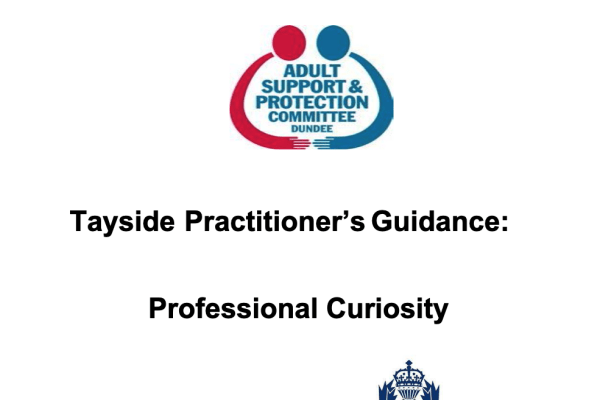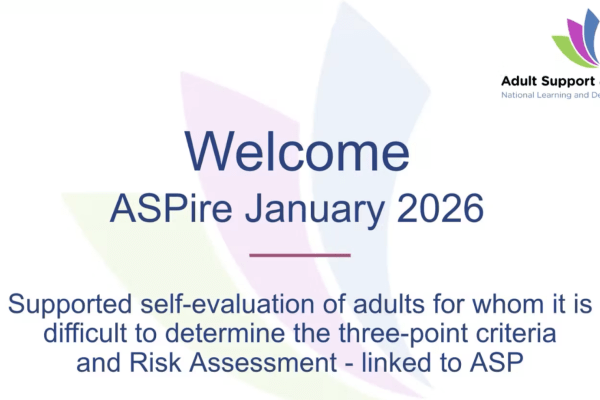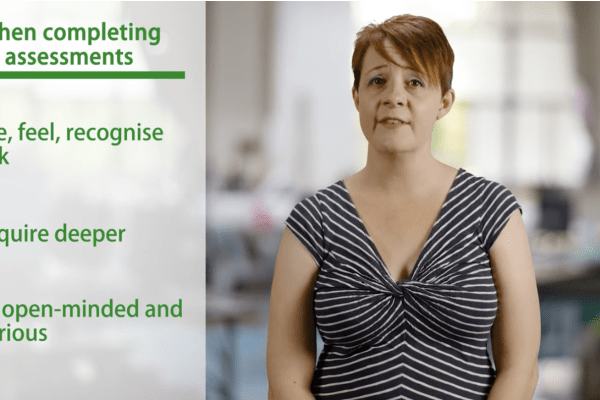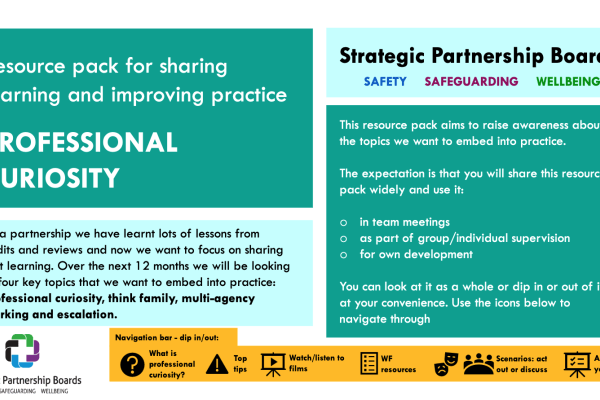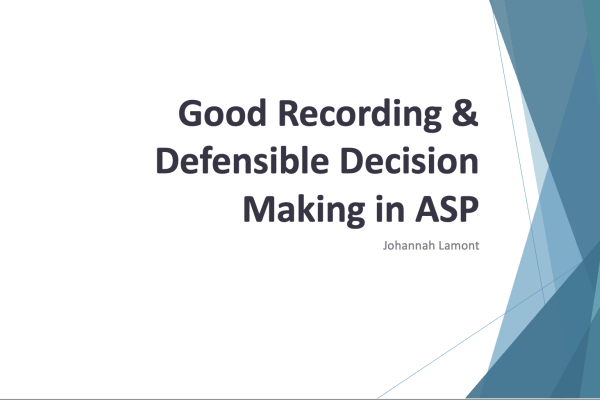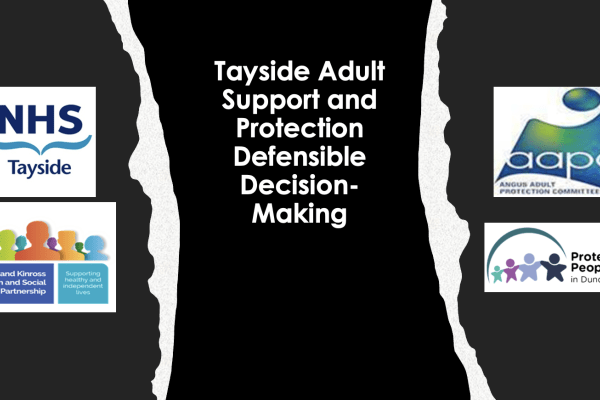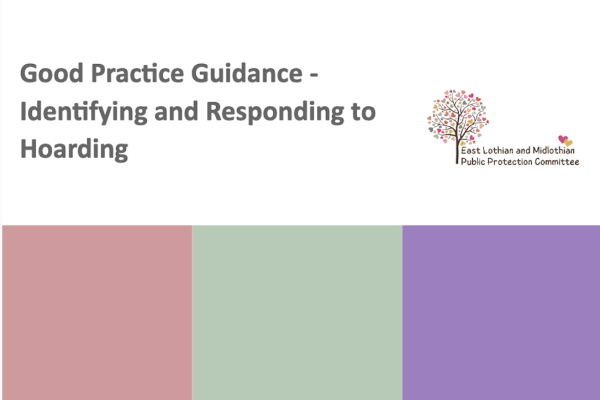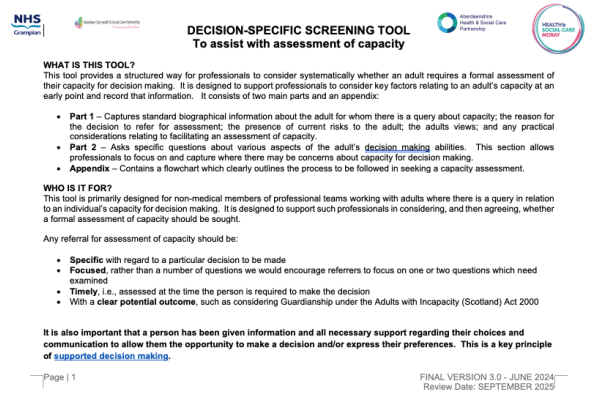Practitioner’s guidance: Professional curiosity (Tayside)
Professional curiosity is about exploring and understanding what is happening with an adult at risk and their family. This practitioner's guidance has been produced by the three Tayside Adult Protection Committees based on the Perth & Kinross Child Protection Committee (CPC) guidance.
This practitioner's guidance covers what professional curiosity is, the barriers to using it, courageous and difficult conversations, and effective use of supervision to support curious and authoritative practice.
